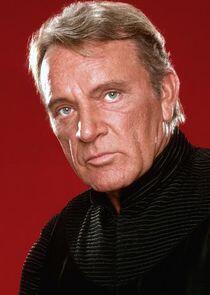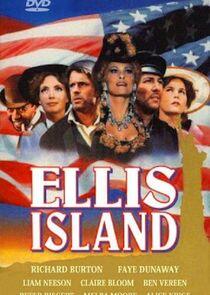
Richard Burton
CountryUnited Kingdom 
GenderMale
BirthdayNov 10, 1925
Death1984-08-05
BiographyRichard Burton (born Richard Walter Jenkins Jr.; 10 November 1925 – 5 August 1984) was a Welsh actor.
Noted for his mellifluous baritone voice, Burton established himself as a formidable Shakespearean actor in the 1950s and gave a memorable performance as Hamlet in 1964. He was called "the natural successor to Olivier" by critic Kenneth Tynan. Burton's perceived failure to live up to those expectations disappointed some critics and colleagues; his heavy drinking added to his image as a great performer who had wasted his talent. Nevertheless, he is widely regarded as one of the finest actors of his generation.
Burton was nominated for an Academy Award seven times but never won. He was nominated for his performances in My Cousin Rachel (1952), The Robe (1953), Becket (1964), The Spy Who Came In from the Cold (1965), Who's Afraid of Virginia Woolf? (1966), Anne of the Thousand Days (1969) and Equus (1977). He received numerous accolades, including a BAFTA Award, a Golden Globe Award and a Grammy Award. He received the Tony Award for Best Actor in a Musical for his portrayal of King Arthur in the Lerner and Loewe musical Camelot (1960).
In the mid-1960s, Burton became a top box-office star. By the late 1960s, he was one of the highest-paid actors in the world, receiving fees of $1 million or more plus a share of the gross receipts. Burton remained closely associated in the public mind with his second wife, Elizabeth Taylor. The couple's turbulent relationship, married twice and divorced twice, was rarely out of the news.
Biography from the Wikipedia article Richard Burton. Licensed under CC-BY-SA. Full list of contributors on Wikipedia.
Noted for his mellifluous baritone voice, Burton established himself as a formidable Shakespearean actor in the 1950s and gave a memorable performance as Hamlet in 1964. He was called "the natural successor to Olivier" by critic Kenneth Tynan. Burton's perceived failure to live up to those expectations disappointed some critics and colleagues; his heavy drinking added to his image as a great performer who had wasted his talent. Nevertheless, he is widely regarded as one of the finest actors of his generation.
Burton was nominated for an Academy Award seven times but never won. He was nominated for his performances in My Cousin Rachel (1952), The Robe (1953), Becket (1964), The Spy Who Came In from the Cold (1965), Who's Afraid of Virginia Woolf? (1966), Anne of the Thousand Days (1969) and Equus (1977). He received numerous accolades, including a BAFTA Award, a Golden Globe Award and a Grammy Award. He received the Tony Award for Best Actor in a Musical for his portrayal of King Arthur in the Lerner and Loewe musical Camelot (1960).
In the mid-1960s, Burton became a top box-office star. By the late 1960s, he was one of the highest-paid actors in the world, receiving fees of $1 million or more plus a share of the gross receipts. Burton remained closely associated in the public mind with his second wife, Elizabeth Taylor. The couple's turbulent relationship, married twice and divorced twice, was rarely out of the news.
Biography from the Wikipedia article Richard Burton. Licensed under CC-BY-SA. Full list of contributors on Wikipedia.
Known For
Recently Updated Shows
Recently updated shows that might be of your interest.

American Dad!
In American Dad!, Stan Smith leads the all-American family in this animated sitcom filled with wild and crazy extremes. Everyday life is taken to the limit as Stan applies the same drastic measures used in his job at the CIA to his home life. Driven by machismo and the American dream, he often is blind to how horribly he fails at his attempts. This father might not know best, but he never stops trying.

Common Side Effects
Common Side Effects follows former high school lab partners Marshall and Frances who begin to unravel a conspiracy involving big pharma and the federal government to suppress knowledge of a rare mushroom that may hold the key to curing all the world's diseases.




